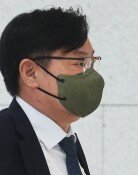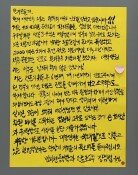Presidential office’s petition system must be aligned with relevant laws
Presidential office’s petition system must be aligned with relevant laws
Posted May. 11, 2018 07:35,
Updated May. 11, 2018 07:35
The Dong-A Ilbo conducted a complete survey on the Chung Wa Dae website petitions posted between August last year to April this year, and it found that a total of 174,545 petitions have been submitted. Among those, 33 petitions earned consent from more than 200,000 people in 30 days, a standard period within which the presidential office has promised to provide an answer to a petition. A closer look into the 33 cases reveals that most of them cannot be handled by Cheong Wa Dae without breaching the separation of powers, and even if they fell under the purview of the administration, some were simply acceptable requests owing to legality or factual misunderstanding.
Public petition is not a brainchild of the Moon Jae-in administration, but a basic right guaranteed by the constitution, and in fact, a number of rules designed to realize the right of petition are enshrined in the petition act, the national assembly act, and the local government act. Each of the laws mentioned here, however, prohibits any petition involving participation in a trial. As a petition recently came up on Cheong Wa Dae to expel Seoul High Court senior judge Jeong Hyeong-sik for suspending a sentence to Samsung Electronics Vice Chairman Lee Jae-yong, presidential secretary for new media Jeong Hye-seung called the National Court Administration to inform it of the petition. Clearly in violation of independence of trials, it was a tall order that should not been accepted as a petition. The petition caused heavy opposition from members of the court, and it will be proposed as agenda in a judiciary representative meeting.
Other petitions such as “a complete investigation into lawmakers’ unlawful behaviors,” “adjustment of minimum hourly wage of lawmakers” and “membership expulsion of Rep. Na Kyung-won from the PyeongChang Olympic Committee” are matters that should be filed directly with the National Assembly pursuant to the national assembly act. The public call to disqualify South Korean speed skaters Kim Bo-reum and Park Ji-woo as national team member gathered more than 200,000 signs in the shortest span of time, but it was more of an emotional accusation lacking consideration of the circumstances. While it did not reach the mark of 200,000, there was a petition demanding disqualification of Lee Seung-hoon, who won the gold medal in men’s mass start speed-skating. The public opposition of the release of child-rapist Cho Doo-soon was the first petition on the Cheong Wa Dae website to collect more than 200,000 signs, which is rightly understandable, but the act of rejecting the release of a prisoner is against the law.
Petitions do help supplement the weakness of representative democracy by directly conveying the requests of the people to the government. The petition website of Cheong Wa Dae was proposed by Chief of Staff Lim Jong-seok, who drew inspiration from We the People, the White House’s petitions site, and President Moon Jae-in embraced the idea to open the public agora. The Cheong Wa Dae petition website has a right function of promoting petitions, which deserves positive feedback.
Unlike South Korea, however, the United States does not have constitution or rules in place to regulate petitions. Our constitution stipulates that all petitions should be filed in the form of a document for clear receipt and execution. By contrast, the rules for accepting and executing petitions on internet websites are arbitrary with room for exploitation such as groundless defamation; moreover, they often serve as a venue to manipulate public opinion or a channel to vent out anger. Now it is time that we should correct the petition system in alignment with the constitutions and laws.
Headline News
- Med professors announce intention to leave hospitals starting Thursday
- Bridge honoring Sgt. Moon Jae-sik unveiled in Pennsylvania
- Chief of Staff Chung tells presidential secretaries to stay away from politics
- US FTC bans noncompete agreements
- N. Korea launches cyberattacks on S. Korea's defense companies







